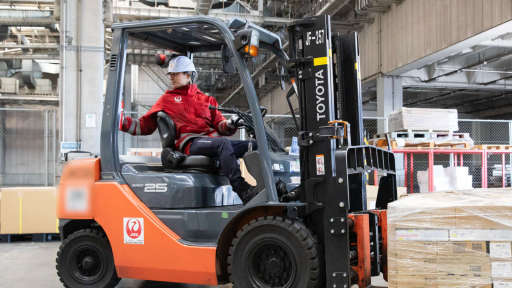- Many Companies Are Becoming More Culture-Oriented Than Performance-OrientedCompanies cannot operate without results. However, while many companies seek to improve employee productivity and skills, there are often cases where communication and teamwork are valued more than individual performance.You must prioritize personal achievements while also being mindful of cooperation with team members and respecting others' opinions. For example, in the construction or manufacturing industries, if there are many rebellious remarks towards the instructions of leaders or supervisors, it may be perceived as a lack of teamwork and disrespect for others' words.Conversely, by demonstrating a cooperative attitude while showing actions that achieve results, you can contribute to the overall efficiency and productivity of the team.
- Time and Rules Are AbsoluteIn Japanese companies, time and rules are clearly defined. For instance, company-specific work regulations must be submitted to the Labor Standards Inspection Office, and violations of these rules will quickly result in penalties.Additionally, punctuality is strictly enforced, and being late can significantly impact trust relationships. In extreme cases, arriving too early is viewed more favorably than being late. Therefore, it is essential to manage schedules with ample time for deadlines and ensure you arrive at meetings or business negotiations at least five minutes early.
- Consideration and Reporting, Communication, and Consultation Are EssentialConsideration in language extends to reporting, communication, and consultation. For example, when coordinating schedules with business partners or colleagues, prioritizing the other party’s availability over your own is considered thoughtful.When making reports, it is important to communicate in a manner such as, "The results are as follows... Up to this point, everything was fine, so we plan to improve the following points. What do you think, [Name]? ... Thank you! I will take your perspective into consideration."
- Telephone and Email Etiquette Are UniqueJapanese business culture and manners make telephone and email communication challenging even for foreigners who can speak Japanese. Therefore, it is helpful to memorize commonly used phrases like the following:
- お世話になっております (Osewa ni natte orimasu):
- I appreciate your assistance.
- ○○会社○○の○○と申します (XX kaisha XX no XX to moushimasu):
- I am XX from XX company.
- お時間よろしいでしょうか? (Ojikan yoroshii deshou ka?):
- Is now a good time?
- 本日は先日相談した○○の件についてお電話いたしました (Honjitsu wa senjitsu soudan shita XX no ken ni tsuite odenwa itashimashita):
- Today, I am calling about the matter of XX we discussed the other day.
- 現在はどのような状況になっておりますでしょうか? (Genzai wa dono you na joukyou ni natte orimasu deshou ka?):
- What is the current status?
- 承りました。弊社としても急ぎではありませんので、引き続きご対応いただければと思います (Uketamawarimashita. Heisha to shite mo isogi de wa arimasen node, hikitsuzuki go taiou itadakereba to omoimasu):
- Understood. It is not urgent on our end, so we hope you can continue addressing it.
- では、お忙しいところ誠にありがとうございました (Dewa, oisogashii tokoro makoto ni arigatou gozaimashita):
- Thank you very much for your time despite your busy schedule.
- In these examples, polite language is used to convey the purpose while communicating with business partners. When receiving a call, it is also required to state your company name and your name, and to understand the caller’s purpose or requirements. Additionally, avoiding phone calls in noisy environments is considered good manners.Regarding emails, more detailed expressions are necessary. For example, the subject line should clearly indicate the purpose, salutations must include appropriate honorifics, and greetings should add expressions of daily gratitude.When addressing the main topic, the content should be clear to the reader, and phrases like "Thank you for your continued support" or "I apologize for the inconvenience, but I appreciate your assistance" are necessary at the end.Points to note include using appropriate honorifics, eliminating typos and errors, and avoiding delayed responses.
- There Are Many Indirect Expressions, and Direct Expressions Are Sometimes AvoidedWhen working in Japanese companies, foreigners might find it puzzling why indirect expressions are often used instead of direct ones. The purpose of Japanese phrasing is to minimize conflict and discomfort, resulting in many reserved expressions such as:
- "I will consider it." → May include an intention to decline.
- "Kangaete okimasu" (考えておきます): This phrase can subtly imply that the speaker may not agree or proceed.
- "I would like to decide after assessing the situation." → Indicates that an immediate decision cannot be made.
- "Joukyou wo mite kime sasete itadakimasu" (状況を見て決めさせていただきます): Suggests the need for more time before deciding.
- "There is a possibility that we cannot meet your expectations." → Implies that it is practically not feasible.
- "Go-kibou ni soeru koto wa kanari muzukashii kamo shiremasen" (ご希望に添えることはかなり難しいかもしれません): Politely indicates the likelihood of non-fulfillment.
- Additionally, when you are in a position to respond, using phrases like the following can facilitate smooth interactions:
- "This is one option we can consider; how do you feel about it?" → Used when responding with your opinion after receiving a proposal.
- "Kore wa ichitō no kangae toshite ikaga deshou ka?" (これは一案の考えとしていかがでしょうか?): Offers a suggestion while inviting feedback.
- "We will consider this within the company, so please continue to support us." → A phrase used when you have received a proposal but cannot provide a yes or no immediately.
- "Kaisya de kentou sasete itadakimasu node,引き続きご支援のほどよろしくお願いいたします." (Kaisha de kentou sasete itadakimasu node, hikitsuzuki go shien no hodo yoroshiku onegai itashimasu): Indicates internal deliberation while maintaining positive relations.
- "We will consider this as a future issue." → A response used when a proposal cannot be realized but a reply is necessary.
- "Kore wa kongo no kadai to sasete itadakimasu." (これは今後の課題とさせていただきます): A polite way to defer or set aside the
ConclusionJapanese business manners and culture may sometimes seem "circuitous" to foreigners. However, appropriate phrasing is necessary to enhance the reliability of clients and company members, thereby recognizing your abilities. Therefore, it is important to learn and gradually adopt Japanese business manners and culture.If you find yourself thinking, "I have started working in Japan, but I’m still not accustomed to the business manners and culture," please feel free to consult us. Peregre Works will support you in working more smoothly and comfortably in Japan.
















